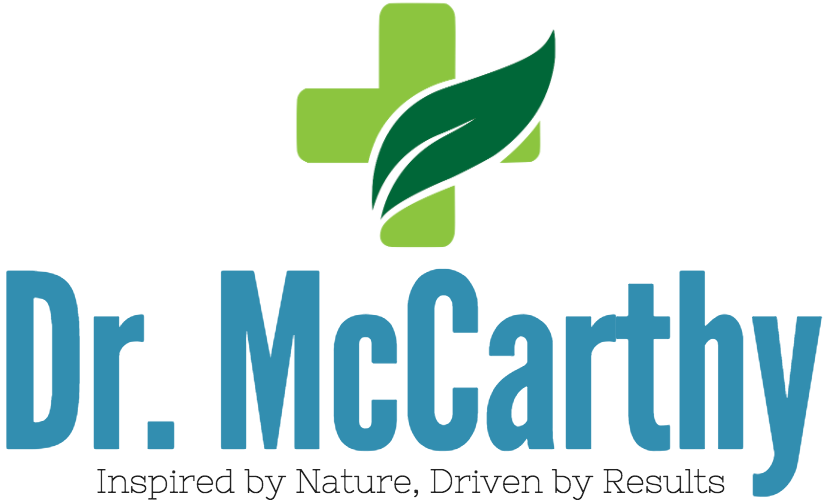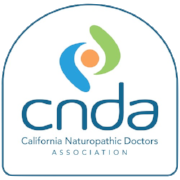Q&A With Dr. McCarthy on the topic of Philosophy:
Medicine
Q: Dr. McCarthy, you seem to be passionate about your philosophy, tell us more about your philosophy of medicine.
Dr. McCarthy's Response: I'd be happy to speak on this subject. First off, let me get clear on what my definition of medicine is, because I think there is often confusion, or misconception when it comes to understanding what medicine really is. By convention, "medicine" can mean a few things.
First, and formally, "medicine" is the treatment, diagnosis, and prevention of disease. It's a profession in which a person (doctor) endeavors to make another (patient) well. In this sense, what I do is "medicine." It's an action, and a way of interacting in the world. It is the dynamic process of building a therapeutic relationship between doctor and patient; the mindful investigation into the cause of health disturbances by doctor and patient; and the logical and accurate application of therapeutics, whether natural or synthetic, aimed at reestablishing balance in the patients health, again, carried out by both doctor and patient. Notice that in each part of the act of "medicine", the doctor and the patient are involved. This is not just a one way street. There is a mutual effort made by both the doctor and patient in the act of medicine. Nature does not provide even a single example of solitary (sui generis) existence. Nothing exists alone. We are social beings by nature, and therefore, all things, be they inert objects, living organisms, or ideas and perceptions, exist in relation to another "thing." It always takes "at least" two to tango in this universe.
Secondly, "Medicine" is often thought of as a substance. The origin of the word "medicine" comes from the latin medicus meaning "a physician." So therefore, in the strictest sense, "medicine" is a profession, or an series of actions that anyone can engage whether they have medical training or not. Just as anyone can report on a topic, without being a bonafide "reporter."
In order to be an accurate axiom, medicine as a substance must thereby fulfill the definition of "treatment" and "prevention of disease." Certainly, anything substance can be said to be a "treatment", so the proof in the pudding lies in the "prevention of disease" concept. What we should ask ourselves is, does this substance help prevent disease?
The term disease broadly refers to any condition that impairs the normal functioning of the body. For this reason, diseases are associated with the dysfunctioning of the body's normal homeostatic processes (i.e. processes that maintain the chemical and hormonal balance of the body). Therefore, we should further ask ourselves, does this substance support the normal functioning of the body? And furthermore, does it help to establish normal homeostatic processes of the body? If the answer is no to either of these questions, i propose that the substance is NOT a medicine, and should be best understood as a drug. A drug is used to treat a disease, certainly, but they do not help restore the normal homeostatic processes of the body. In fact, often the opposite is true; drugs tend to cause more imbalance than what was present initially.
Healing
Q: From your perspective, what is "Healing"?
Dr. McCarthy's Response: Great question, and a topic that often leads to some deep conversations. So, I'll try to keep it brief and rather surface level. Healing to me, and in my experience, is at the core of the process of Life. Healing is a learning process, and so is the process of Life. Let me take a step back and explain.
Healing is a process, can we agree on that? Good, and if not, listen up. Healing is the process of going from a state of disintegration, to one of integration. We can think of a cut on the arm to illustrate this point. The cut represents a state of dis-integration --the dermis and surrounding connective tissue has been broken, and disintegrated, at that particular point in the skin. The healing process, is the dynamic process that results in the reunion of the skin at that particular point, and it involves a vast array of chemistry that I will not bore you with at present; but rest assured, there is allot going on when it comes to healing a cut.
Now, who heals the cut? Is it you? Are you directing all of the processes involved in healing the cut? Do you, with conscious effort form the blood clot, lay down granulation tissue, contract the tissues to proximate the edges, etc? I'll answer for you--No, you do not. What or Who is doing that for you? In Naturopathic medicine we call it the "Vis Medicatrix Naturae" or the "Healing power of Nature." In Chinese medicine they call it "qi" or "chi" and in homeopathic medicine they may call it the "vital force." Whatever you call it, it is there, intelligently directing the show called healing. Healing on the physical level is the natural tendency of all living organisms. You don't have to think about it, and in the normal, healthy functioning body, you cannot stop it from happening. This in large, is a complete contradiction to the law of Entropy, which asserts that the natural tendency of all things is towards a state of disorder and disintegration. Somehow, your body defies scientific law! Not the first or the last time that will happen in your human experience.
Healing can occur on many levels. Physical, mental, emotional, and spiritual to name a few. Physical healing is a no brainer. We are all very familiar with this process. If the proper building blocks are present through nutrition, hydration, and the appropriate care is given to the body during the healing process, nature will mend you right up, no questions asked.
As I mentioned, healing is a "learning process." Well, we would all like to think that our kids, in their reckless behavior on the playground would "learn"a bit from their injuries. Breaking a leg when you're 10 years old can be quite the set back. A moment to reflect on how you found yourself sentenced to crutches and a cast while the rest of your friends run wildly about on the playing field, enjoying the freedom of movement that the healthy, uninjured body offers. Physical injury, and the subsequent healing process provides us with a valuable learning opportunity, one that teaches us how not to revisit the injured state in the same manner.
However, mental/emotional and spiritual healing is another topic that may need more discussion. Herein lie the BIG injuries. The injuries that nature takes much longer to heal, and injuries that often require our conscious involvement and awareness to overcome. Similarly however, when a mental/emotional or spiritual injury occurs, nature goes right to work in an attempt to bring about healing. Let's consider an emotional trauma, such as the sudden loss of a loved one. We all may be familiar with the 5 stages of grief and loss, and if you are not, here they are:
- Denial & Isolation
- Anger
- Bargaining
- Depression
- Acceptance
Time will heal as they say, and that is because, it takes time for the emotional body to engage all aspects of the healing process and integrate the experience into something useful and Self-promoting. Nature conspires, brings certain individuals and experiences into our field of awareness that help to expedite the healing process by providing a shift in perspective. However, the healing process on the mental and emotional levels can stall, and remain disintegrated for a very long while; and in some cases, individuals pass through a good portion of their life, carrying the baggage of past mental and emotional traumas, only to be passed onto offspring, and taken into the next stage of our spiritual journey in another life. What causes this prolongation of the healing interval? Resistance. Mental and emotional resistance can completely cease the healing process, just as a stubborn mule will not budge from a determined position solely by mental power alone. This brings our attention to the concept of willingness when it comes to healing mental and emotional traumas. Stages 1-3 are all examples of unwillingness. When one reaches the stage of acceptance, healing is achieved, and a valuable life lesson is learned.





